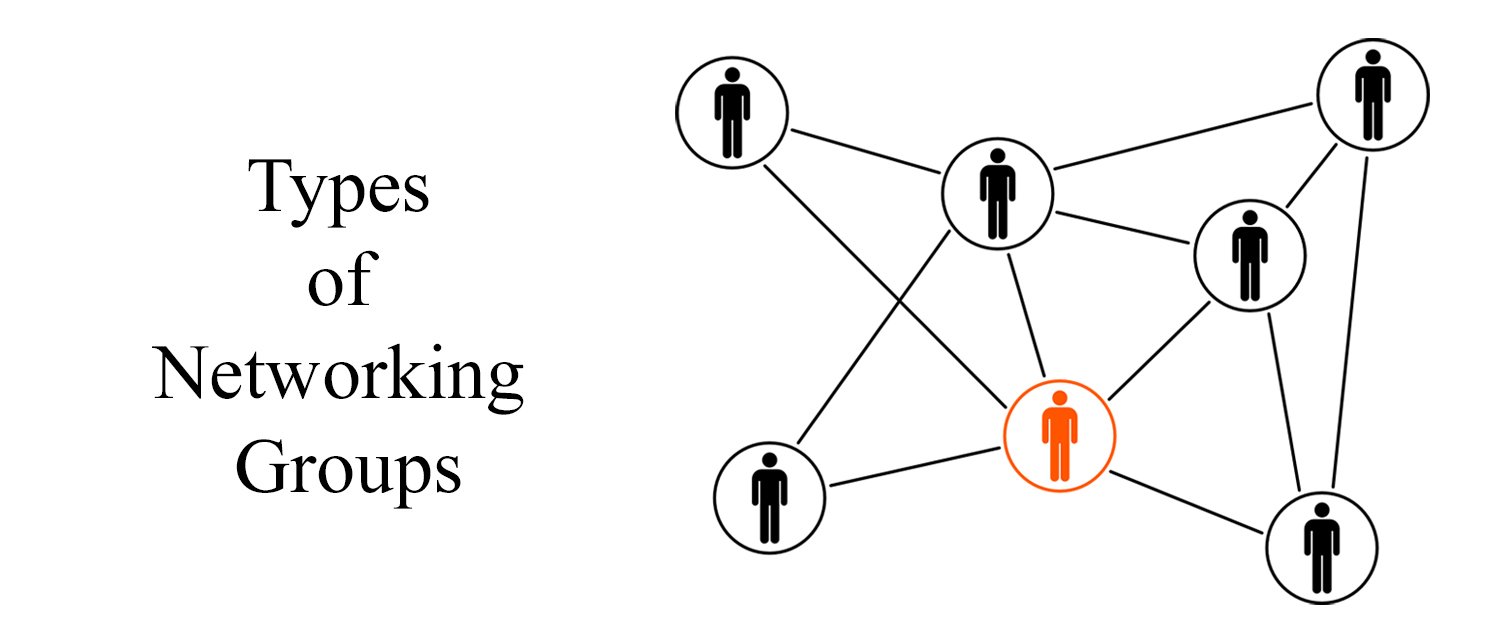Types of Networking Groups
By: Lauren Marsicano
Insta: @networkingmaverick
Types of Networking Groups
Finding a networking group that suits you and your business’s needs can be tricky, especially if you’re new to networking. It can sometimes feel like you’re a kid in a candy store - so many options, but which one will be the most worthwhile? To speed along the process, I’ve compiled this handy-dandy list of the different types of networking groups you’re likely to come across, and why they may (or may not) work for you and your business!
Chamber of Commerce
Your local Chamber of Commerce is about to become your BNF (Best Networking Friend). Typically, a Chamber of Commerce includes members located within a certain area who pay to be part of the group. A Chamber of Commerce’s goal is usually to promote local businesses and help members network and grow. What’s not to love there?
Chambers typically hold events to help members make connections, build their networks, and facilitate sales among members. Some Chambers offer educational programming or employee training to keep members up-to-date on business topics.
Additionally, joining a Chamber of Commerce indicates to locals that you and your business are dedicated to the community. So besides all the technical business benefits joining a Chamber of Commerce can provide, it can also boost your business’s local reputation!
Professional Associations
Professional associations are a great way to expand your network of people in your same field. Members of a professional association tend to be from a specific industry - be that accounting, architecture, banking, marketing, anything you can think of! The purpose of a professional association is to form networking connections and to exchange information and ideas.
You can also, in some circumstances, join professional associations for fields that you aren’t a part of. I can almost hear you ask, “What? How does that work?” Well, a growing number of professional associations have stopped limiting membership to those who have specific industry credentials, and expanded to include an associate member category. By including this category, the associations are able to fund their groups and give their members a slate of potential clients. Lucky for you, that goes both ways! By joining a professional association for an industry you aren’t a part of, you have the same opportunity to expand your client base and make connections outside of your field.
Leads Groups
Of all the networking groups, leads groups are the most intense. They involve the most financial, time, and effort investment. But we can handle that, right Queens (and if we can’t that’s okay too, there are tons of other options)? Leads group organizations include the likes of BNI (Business Network International), LeTip, and many other regional, national, and international organizations.
Leads groups typically have chapters, which divide the members into subgroups that have similar client bases. This ensures accurate and productive leads and referrals. Leads groups require members to attend regular meetings and bring with them quality referrals and leads for other chapter members.
Because these groups tend to be costly and time-intensive, they may not be the best choice for everyone. But for those who have the time, money, and effort to invest, leads groups can be an incredible opportunity for network and business growth.
Community and Identity Associations
Community and identity associations are groups that gather based on a mutual interest, identity, or qualification. For example, groups based on gender identity, ethnicity, age, hobbies, alumni status, and charitable cause groups are all popular. Though typically not business-focused, joining a community- or identity-based association can help you expand your client-base and network with those who share your identity or interests.
Identity-based associations in particular can be especially helpful and supportive for people from marginalized communities who are seeking advice and counsel from those who share their identity and can empathize with their struggles.
Interest-based associations can be helpful for expanding your client base to people with similar interests to you. For example, let’s say you’re an interior designer who loves Star Wars (or Star Trek, I don’t pick sides!). If you join a Star Wars-focused group or association and network well, you might have the opportunity to do some fun, nerdy interior decorating! And if you don’t get any business from the interest-based group you joined, feel free to switch groups! The good thing about interest-based groups is the sheer quantity out there, so you’ll never have to feel like you’re looking in Alderaan places!
Online Communities
Online networking groups provide global networking and marketing opportunities. Online groups offer varying things: some provide forums for communication, online and face-to-face networking events, or educational business seminars and mentorship.
Can’t find one that interests you? The beauty of the internet is that you can create a group that suits your needs yourself! If you make your own group, you can tailor it to include what will benefit you, and you’ll be providing a broad audience with the opportunity to network with you about your industry or topic of interest!
So, what’s the takeaway?
There are so many networking group options for you to explore - whether you’re leaning more profession-based, or looking to find some networking connections who share a love of lightsabers. Hopefully, this list has helped you narrow down what kind of networking group will benefit you and your business the most.
I wish you the best of luck finding a group that works for you, and as always…
Happy Connecting!

